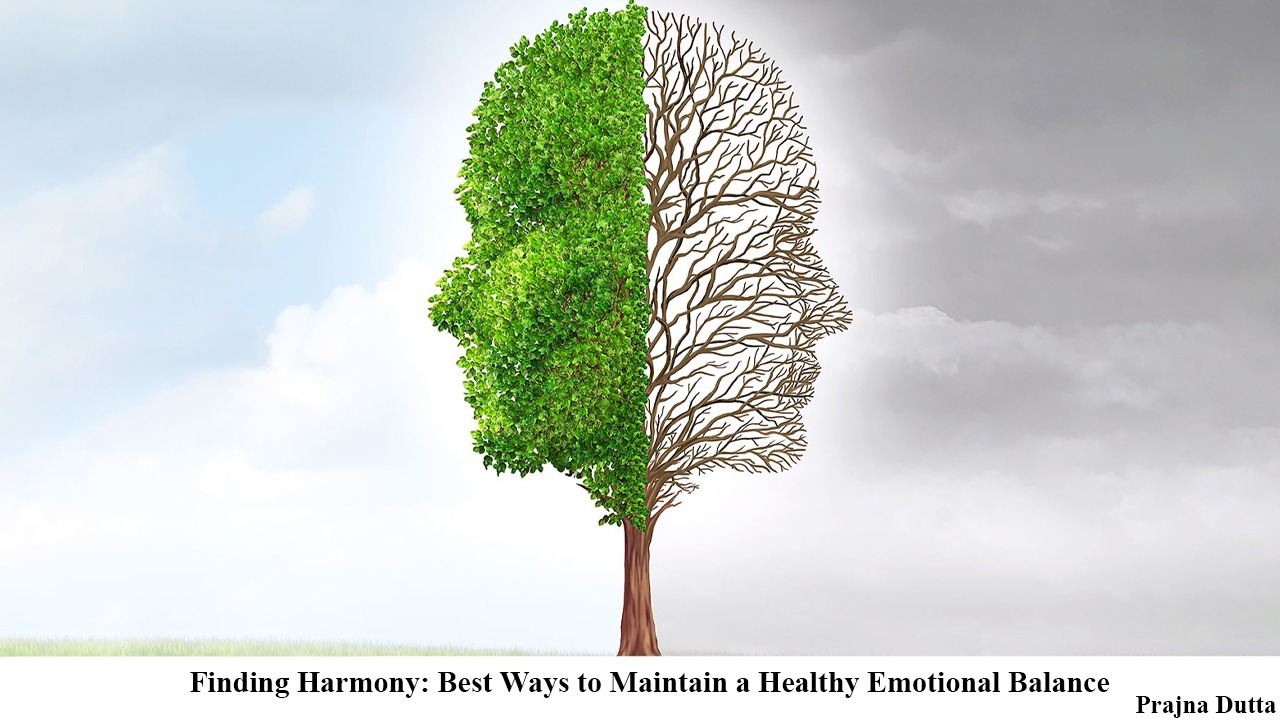In today's fast-paced and often stressful world, it's easy to become overwhelmed by our emotions. Whether it's the demands of work, relationships, or daily life, it's crucial to find ways to maintain a healthy emotional balance. When we neglect our emotional well-being, it can lead to anxiety, depression, and a host of other issues that can impact both our mental and physical health. However, by incorporating certain practices and habits into our lives, we can cultivate emotional resilience and find greater harmony within ourselves.
1. Self-Reflection and Mindfulness:
Taking the time for self-reflection and mindfulness is essential for maintaining emotional balance. By being aware of our thoughts and feelings, we can gain insight into our emotional state and recognize any patterns or triggers that may be affecting us. Mindfulness practices such as meditation, deep breathing exercises, and yoga can help us stay present in the moment and reduce feelings of stress and anxiety.
2. Healthy Lifestyle Choices:
Our physical health is closely linked to our emotional well-being. Engaging in regular exercise, eating a balanced diet, and getting an adequate amount of sleep can have a significant impact on our mood and overall emotional health. Exercise releases endorphins, which are natural mood lifters, while a nutritious diet and sufficient sleep contribute to our ability to cope with stress and maintain a positive outlook.
3. Build a Support System:
Having a strong support system of family and friends is crucial for emotional balance. Surrounding ourselves with positive and understanding individuals can provide comfort and perspective during challenging times. It's important to nurture these relationships, communicate openly, and seek help when needed. Additionally, seeking professional help from a therapist or counselor can offer valuable support in managing emotions and developing healthy coping mechanisms.
4. Emotional Expression:
Expressing our emotions in a healthy and constructive manner is key to maintaining emotional balance. Whether through journaling, creative outlets such as art or music, or engaging in open conversations with trusted individuals, finding ways to communicate and release pent-up emotions can prevent them from building up and causing distress.
5. Set Boundaries and Manage Stress:
Learning to set boundaries and manage stress effectively is essential for maintaining emotional equilibrium. It's important to recognize when we are taking on too much and to prioritize self-care. This might involve learning to say no, delegating tasks, or simply taking regular breaks to recharge. Engaging in activities that bring joy and relaxation, such as hobbies and spending time in nature, can also help manage stress and prevent emotional burnout.
6. Practice Gratitude and Positive Thinking:
Cultivating a mindset of gratitude and positive thinking can significantly impact our emotional well-being. Taking time each day to acknowledge the things we are grateful for can shift our focus toward the positive aspects of our lives, fostering a sense of contentment and resilience in the face of challenges.
In conclusion, maintaining a healthy emotional balance is a continuous process that requires self-awareness, self-care, and the cultivation of positive habits. By integrating these practices into our daily lives, we can develop the emotional resilience needed to navigate life's ups and downs with grace and stability. Remember that it's okay to seek help and support when needed, and that investing in our emotional well-being is a worthwhile endeavor that can lead to a more fulfilling and balanced life.

Comments